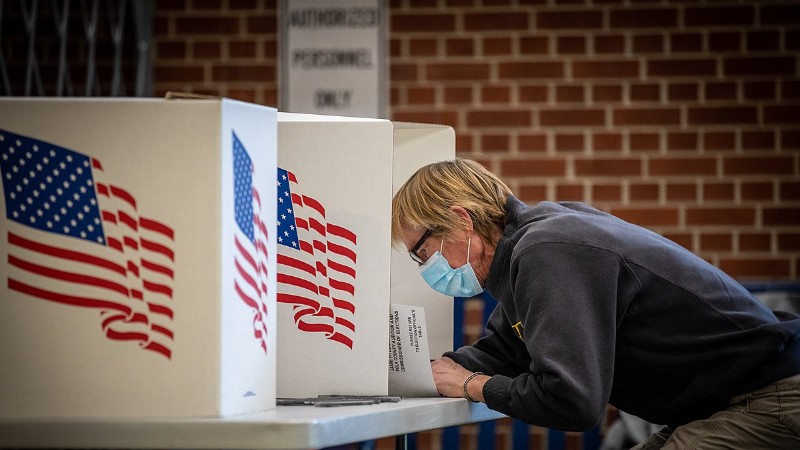The upcoming presidential election has many Americans concerned about the future of healthcare programs, particularly Medicaid. Medicaid is a major public healthcare program, supporting nearly 73 million Americans, including low-income families, people with disabilities, and many seniors needing long-term care.
With various proposals and policy debates, Medicaid is a major focus, highlighting the different plans from former President Donald Trump and Vice President Kamala Harris. Both candidates talk about healthcare changes, but they have very different ideas about Medicaid and other support programs.
Key Takeaways
The 2024 presidential election has significant implications for senior healthcare services and Medicaid, with candidates Trump and Harris proposing vastly different plans.
- Trump’s plan could lead to budget cuts in Medicaid, potentially affecting access to vital healthcare services for seniors.
- Harris aims to strengthen Medicaid by increasing funding and expanding its role in providing healthcare to those who can’t afford private insurance.
- The outcome of the 2024 election will greatly influence Medicaid’s structure and access, impacting not only low-income individuals but also the growing number of seniors relying on it for long-term care.
Trump’s plan
Jonathan Cohn from the Huffington Post explains that Trump’s healthcare plans could mainly affect Medicaid. While Trump has promised to safeguard Medicare and Social Security, Medicaid might face budget cuts. Cohn points out that this aligns with traditional Republican goals to cut Medicaid costs. This election could decide Medicaid’s future and the financial stability of the many Americans who depend on it for vital healthcare.
According to Cohn, Trump, along with his Republican supporters, is planning major tax cuts similar to those from 2017. These tax cuts could cost the government trillions over the next ten years. While Trump has promised not to reduce Medicare or Social Security, this leaves Medicaid as the main program where cuts could be made to make up for lost revenue. The Republican budget plan, proposals from the House Republican Study Committee, and the Heritage Foundation’s Project 2025 all suggest large Medicaid spending cuts.
During Trump’s first term, there were efforts to change Medicaid into a block grant program. This means states would get a fixed amount of federal money and have the freedom to decide who qualifies and what services are provided. Supporters think this gives states more control over healthcare to fit local needs. However, critics worry it could lead to fewer Medicaid services. Seniors who rely on Medicaid for things like nursing home care might face coverage gaps if states have to limit or cut services due to having less federal money.
Trump’s view is shared by many Republicans who see Medicaid as a system that’s too stretched. They believe it’s not financially sustainable and doesn’t operate efficiently. These critics feel giving states more control could reduce extra spending and stop low-income people from relying too much on government help. But healthcare experts caution that this cost shift to the states might weaken Medicaid, possibly cutting access to essential services for seniors and other vulnerable groups.
As Cohn points out, Medicaid takes up a big part of the federal budget, costing over $500 billion each year, plus money from states. While Medicare and Social Security are protected from cuts, reducing Medicaid could help fund Trump’s planned tax cuts and control the federal deficit.
However, healthcare providers, hospitals, and senior care facilities worry that cutting Medicaid could make healthcare harder to access. This could put extra financial pressure on services that are vital for low-income patients, especially older adults.
Harris’s approach
Vice President Kamala Harris’s platform focuses on expanding Medicaid and maintaining support for it. Harris wants to increase funding for Medicaid so seniors, low-income families, and people with disabilities can get the care they need. Her policies suggest tax changes for big companies and wealthy individuals, which would bring in money to keep Medicaid going strong. With more funds, Harris intends to strengthen Medicaid’s role in providing healthcare to those who can’t afford private insurance.
Harris plans to support key parts of the Affordable Care Act, which helped expand Medicaid to cover millions more Americans. Thanks to the ACA, many more people now have health insurance. Harris is committed to keeping these expansions in place and stopping any attempts to limit Medicaid eligibility. Her campaign emphasizes how important Medicaid is, not just for those who rely on it, but also for healthcare systems that need Medicaid funding to provide services.
With Harris’s plan, seniors who depend on Medicaid for long-term care would still have access to necessary resources without extra restrictions set by the state. More funding could also help support important services for seniors, like home healthcare, rehab, and help with prescription drugs. Unlike the block grant method, Harris’s policies aim to keep Medicaid’s funding steady, meeting the rising healthcare needs as the population grows older and healthcare costs go up.
Harris’s campaign supports making Medicaid better by adding more mental health and substance abuse services. This helps fix holes in the current system, making sure Medicaid can meet new healthcare needs.
For seniors, Harris’s plan means better Medicaid coverage, which can be a relief, especially for those with limited incomes who can’t afford private healthcare. Raising corporate taxes is part of this plan to ensure Medicaid stays strong, reducing the chance of any cuts that might harm senior care.
Impact on seniors and the future of Medicaid
Both candidates’ healthcare plans have big impacts on Medicaid, especially when it comes to access and steady funding. Medicaid is crucial for seniors needing nursing home care, home healthcare, and extra medical help that Medicare doesn’t cover.
If Trump’s proposals go through, there could be stricter eligibility rules or fewer covered services as states deal with less federal support. On the other hand, Harris wants to increase Medicaid funding, which might keep current services safe and even improve healthcare access for seniors.
The financial effects on healthcare providers can be significant. Medicaid pays for many hospital and nursing home patients, especially seniors. Less Medicaid money could make it hard for these places to run smoothly.
This might lead to fewer staff, lower quality services, or even closures, especially where many people rely on Medicaid. For seniors in rural or underserved areas, these closures could make finding care harder, forcing them to travel more or wait longer for important services.
Conclusion
Cohn points out that the Republican budget plan could significantly affect Medicaid. Unlike Medicare and Social Security, which are usually protected, Medicaid often isn’t. Yet, it is crucial for millions of Americans. Cohn says that Trump’s campaign has not talked much about Medicaid this election. Instead, it focuses on tax cuts and market-driven healthcare reforms.
The 2024 election results will greatly influence Medicaid and senior care programs. Trump’s approach may lead to state-controlled Medicaid with possible cuts on who qualifies and what is covered, impacting seniors. On the other hand, Harris aims to strengthen Medicaid by adding more funds and expanding it, ensuring it continues to help those who need it.
For seniors, Medicaid is more than just healthcare; it’s a financial safety net that helps them afford crucial services without high costs. As you look at where the candidates stand, your vote will shape Medicaid’s structure and access for years, impacting not only low-income people but also the increasing number of seniors who uses Medicaid for long-term care.



